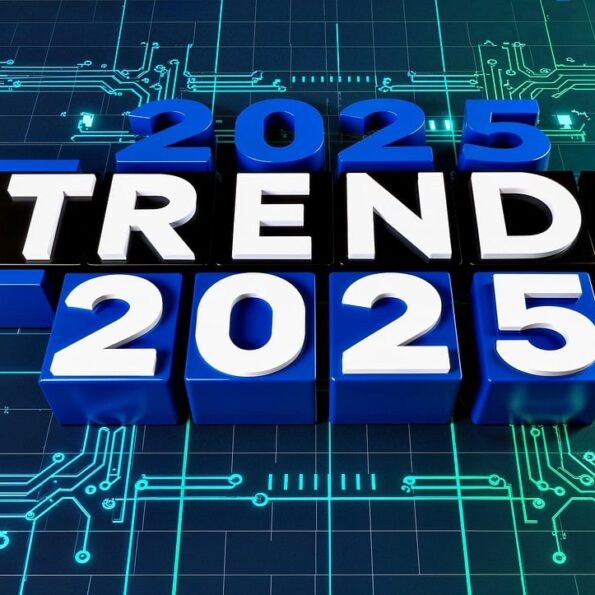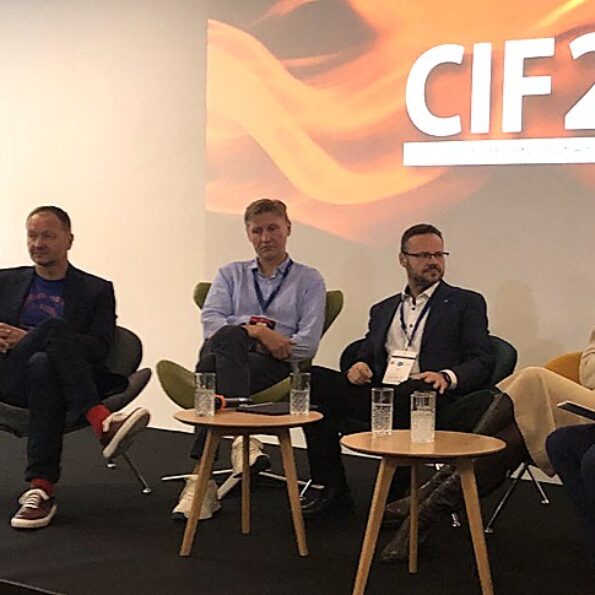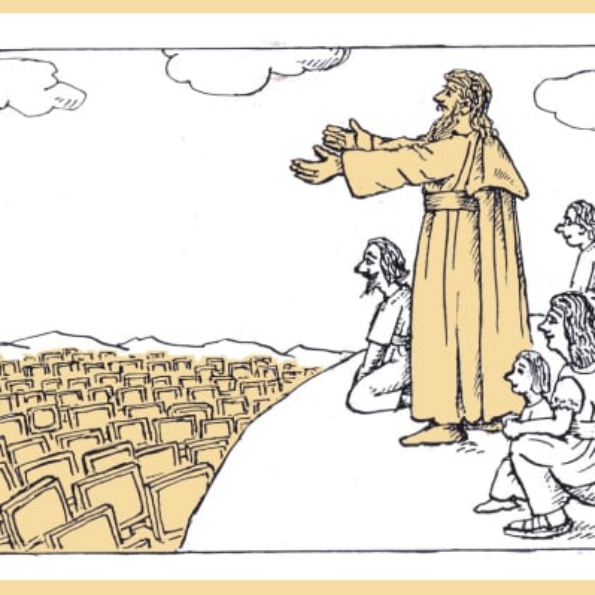Most-read topics:
all GroupM VOD creativity efficiency aktv TV Nova TV Prima linear television attention AI QR
PRIMA’S APRIL CAMPAIGN REVEALS THE LAUNCH OF THE PARŤÁK NA BATERKY SERIES
2. 4. 2025 Introducing Lukáš Příkazký as the first humanoid in TV Prima’s team, the media group has launched a campaign for the new TV series Parťák na baterky. With the release of its April issue, TV Prima has launched a campaign to launch its Parťák na baterky series. It will be presented for the first time on Wednesday… Continue reading PRIMA’S APRIL CAMPAIGN REVEALS THE LAUNCH OF THE PARŤÁK NA BATERKY SERIES

E-POJISTENI.CZ COMPARISON ENGINE HAD A TV CAMPAIGN CREATED BY AI
27. 3. 2025 Artificial Intelligence tools have created the individual images of the new TV ad for the comparator ePojisteni.cz. Comparison engine ePojisteni.cz presents a new TV campaign called “Compare Smartly”. Once again it links up with monkeys, however this time the production has been provided by artificial intelligence. “The form in which the new TV campaign of… Continue reading E-POJISTENI.CZ COMPARISON ENGINE HAD A TV CAMPAIGN CREATED BY AI

TRENDS IN SPORTS SPONSORSHIP
13. 1. 2025 The growing influence of artificial intelligence, the increased visibility of Olympic partners or Nike’s aggressive journey back to relevance. These are some of the trends that are expected to be evident in global sports sponsorship in 2025. In the past year, this area has been impacted by major changes, returns and departures. “Rights holders are… Continue reading TRENDS IN SPORTS SPONSORSHIP

WHAT WILL BE THE IMPACT OF AI DEVELOPMENT IN THE MEDIA? JOSEF SHLERKA’S PREDICTIONS FOR CIF 2024 WERE DARK
11. 12. 2024 Ironically, according to Josef Šlerka, Google or Seznam are today a great friend of journalism. When they stop penalising AI-generated content, they will raise the floodgates of overproduction, in which it will be even more problematic to distinguish between false and true news. Explore the not-so-favorable scenarios of how the AI boom may affect the… Continue reading WHAT WILL BE THE IMPACT OF AI DEVELOPMENT IN THE MEDIA? JOSEF SHLERKA’S PREDICTIONS FOR CIF 2024 WERE DARK

ONLY 10 PERCENT OF CZECHS AGREE WITH THE USE OF AI IN NEWS
11. 11. 2024 Czech users of news content do not trust artificial intelligence in news. They fear it makes it impossible to distinguish fiction from reality, according to a new study by ResSolution Group and Nielsen. Only 10% of the Czech online population agree with the use of artificial intelligence (AI) tools in news, across all media types.… Continue reading ONLY 10 PERCENT OF CZECHS AGREE WITH THE USE OF AI IN NEWS

TRENDS FOR 2025 BY KANTAR: FROM “WOKE” BRANDS TO “TOTAL” VIDEO
6. 11. 2024 The top 10 trends that will influence marketing in the next year and beyond have been presented by Kantar. It addresses the limits of innovation, generative AI and the demands of retail media. Kantar’s Marketing Trends 2025 report, which is based on both attitudinal research and behavioural data, is designed to help marketers navigate an… Continue reading TRENDS FOR 2025 BY KANTAR: FROM “WOKE” BRANDS TO “TOTAL” VIDEO

CIF: CZECH MEDIA WILL NOT ENTRUST FULL CONTENT CREATION TO AI
5. 11. 2024 Artificial intelligence is a good servant but a bad master in the media, representatives of domestic media houses agreed at the Czech Internet Forum conference. Domestic media companies use artificial intelligence (AI) for auxiliary processes, but they rule out the full replacement of human work with generative AI tools. They see compliance with internal rules… Continue reading CIF: CZECH MEDIA WILL NOT ENTRUST FULL CONTENT CREATION TO AI

RESEARCH: THE CZECHS HAVE A CONTRADICTORY ATTITUDE TOWARDS ARTIFICIAL INTELLIGENCE
8. 9. 2024 The last year has seen great progress in generative artificial intelligence. How does the general public view this revolution? What concerns and hopes does Gen AI bring with it? That’s what Ipsos found out in its AI Monitor survey. Czechs’ knowledge of AI is behind the global average More than half of Czechs (56%) say… Continue reading RESEARCH: THE CZECHS HAVE A CONTRADICTORY ATTITUDE TOWARDS ARTIFICIAL INTELLIGENCE

AI AS PART OF THE PRODUCT TENDS TO PUT CONSUMERS OFF
20. 8. 2024 For products where it is stated that AI has been involved in their development or production, consumers’ willingness to buy is reduced. Artificial intelligence is not very attractive to buy products where it is involved in the development or production. According to a study published in the Journal of Hospitality Marketing & Management, mentioning AI… Continue reading AI AS PART OF THE PRODUCT TENDS TO PUT CONSUMERS OFF

CZECHS STILL PREFER HUMAN VOICES IN THE MEDIA MORE THAN ARTIFICIAL ONES
25. 6. 2024 Negative perceptions of the use of artificial intelligence in the media still prevail over positive ones in the Czech population. This is shown by a new wave of research on artificial intelligence in Czech society by Ipsos and FSV UK. More than a quarter of the Czech population thinks that the use of AI in… Continue reading CZECHS STILL PREFER HUMAN VOICES IN THE MEDIA MORE THAN ARTIFICIAL ONES

HOW ARE CZECH MEDIA CHANGING BY AI? ANSWERS ON THE DIGIMEDIA 2024 CONFERENCE
22. 3. 2024 This year’s 19th Digimedia conference, which will take place on 13 June 2024 in the Congress Hall of the Czech Television in Kavčí Hory, will be not only about television and radio broadcasting. One of the sessions will be dedicated to artificial intelligence and its impact on Czech media. The conference is organized by the… Continue reading HOW ARE CZECH MEDIA CHANGING BY AI? ANSWERS ON THE DIGIMEDIA 2024 CONFERENCE

THE CULTURAL SECTOR’S RESPONSE TO THE ADOPTION BY THE EU COUNCIL OF THE ARTIFICIAL INTELLIGENCE ACT
9. 2. 2024 The cultural associations representing a wide range of content creators including the news media, television industry, film producers and music publishers (SPIR, Czech Publishers Union, AKTV, AOV, ČNS IFPI, APA) welcome the Czech Republic’s decision to support the Artificial Intelligence Act agreed in the difficult trialogue in December. Although its wording is not ideal from… Continue reading THE CULTURAL SECTOR’S RESPONSE TO THE ADOPTION BY THE EU COUNCIL OF THE ARTIFICIAL INTELLIGENCE ACT
